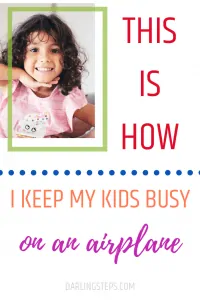Having a child is easy. Raising a child not so much. No job is more important, frustrating, or rewarding than raising a happy, confident, and successful child.
Raising happy, capable children is one part science and two parts art. No two children are exactly the same. Each child has his own strengths and weaknesses. Each child has a unique set of challenges. One child might be great at school but struggles socially, while another has plenty of friends but struggles to deal with his emotions.
So what’s a parent to do?
Despite these individual differences, there are general principles that apply to us all. The tips in this guide will help you to instill habits and thought processes in your children that lead them toward a happy and fulfilling life.
It is easier to build strong children than to repair broken men
Frederick Douglass
Decide What Happy, Confident, and Successful Mean to You
We all hold differing opinions on what success means. Keep in mind that success at one age doesn’t necessarily mean success at another age. You might be pleased with your 6-figure 401(k), but a child would probably prefer to have a loving group of friends.
Still, a successful childhood will often translate into easier confidence, happiness, and success as an adult.
Consider the various parts of a child’s life:
‣ School
‣ Peers
‣ Family life
A child must also learn how to:
‣ Grow their emotional intelligence
‣ Set and achieve goals
‣ Make decisions
‣ Deal with fears and stress appropriately
‣ Show kindness
‣ Take responsibility for their actions
‣ Create good habits
As a parent, you have the most crucial role in teaching these skills to your child. Consider what you believe your children should know to thrive in each part of their life during childhood and beyond. Create your own list and use it to formulate your strategy.
Determine your responsibilities:
‣ Food, clothing, and shelter
‣ Love
‣ Encouragement
‣ Wisdom
Also, consider where you’ll draw the line. Will you teach your child to stand up to a bully, instruct them to notify the teacher, or take matters into your own hands?
Some parents believe in taking control of every aspect of their child’s life, while others take an entirely hands-off approach. In the first case, if you do everything for your child, they may struggle to take care of themselves later in life. In the second, they’re likely to feel overwhelmed and fail to thrive.
Finding the right balance is important. This balance will depend on the individual child.
Know your child:
‣ Intelligence
‣ Introvert vs. extrovert
‣ Confidence
‣ Emotional stability and strength
‣ Interests
‣ Ability to focus
A highly intelligent and introverted child will require a different approach than a confident, extroverted child that struggles with school. A child may need limited assistance in some areas while requiring extensive help in others. It’s also possible your child is so gifted in certain areas that they might be able to teach you a thing or two!
The choices you make as a parent can help or harm your child.
It’s important to define success, determine your responsibilities, and consider your child’s unique traits.
All children are born pure egoists. They perceive their needs to the exclusion of all others. Only through socialization do they learn that some forms of gratification must be deferred and others denied
Andrew Vachss
Emotional Intelligence
Emotional intelligence is the ability to recognize and manage the emotions of yourself and others. This might be the most critical skill anyone could ever learn!
Emotional intelligence is considered to be a much better predictor of success and happiness than IQ.
Being intelligent isn’t very helpful if you’re unable to deal with yourself and others effectively. You probably know at least one person who is highly intelligent but struggles with life.
Raise the emotional intelligence of your child:
Be a good example
- Your child is always watching you for clues regarding how to behave in different circumstances. Are you being a good role model? If your own emotional intelligence can use a little work, now is the time to get busy.
- Purchase three books on emotional intelligence and begin to put the ideas into action. By enhancing your own emotional intelligence, you’ll be helping yourself and your child. Set a good example.
Encourage your child to express his emotions
- People are separate from their feelings. A person might be feeling anger, but they are not literally “angry.” It’s necessary to make this distinction. When your child expresses his emotions, he can begin the processes of discovering that his emotions are separate entities.
- Help your child to label emotions when they arise. Address their emotions. “You’re feeling sad because your friend can’t play today.”
Teach your child to view emotions as a message and deal with them effectively
- Emotions aren’t an invitation to act out. Emotions can be acknowledged without the need for impulsive action to follow. Help your child learn to tolerate negative emotions and find solutions when appropriate.
Praise your child when they show emotional intelligence
- Whenever your child demonstrates self-control or other appropriate emotional behavior, point it out and compliment them for their successful effort.
Share your own emotions with your child
- Tell your child that you’re disappointed that your favorite TV show was cancelled or that you’re upset that your sister is ill. Explain how that emotion feels to you.
Point out emotions in others
- Point out the angry man in the grocery store or the happiness in a sibling. Recognizing emotions in others takes practice. Fortunately, there are people experiencing emotions everywhere. Make a game out of it.
Teach your child how to calm down
- Lead your child by asking appropriate questions:
- Do you think you need a few minutes of quiet time to calm down?
- Since you’re getting upset, let’s take a few deep breaths and relax until you feel calm again.
- What will help you to feel more calm and relaxed?
Teach your child positive self-talk
- Give your child examples of positive self-talk when negative emotions occur.
“When you’re feeling uncertain, say to yourself, ‘I’m a big girl, and I can handle this.'”
Emotional intelligence is an integral part of happiness, confidence, and success. The best way to instill emotional intelligence in your child is to demonstrate it each day. Build your own emotional intelligence and take the necessary steps to accomplish the same in your child.
Parents are the ultimate role models for children. Every word, movement, and action has an effect. No other person or outside force has a greater influence on a child than the parent
Bob Keeshan
Building Social Skills in Your Child
A child without friends feels alone and unwanted, no matter how much love and attention you shower upon them. In many ways, a child with a high level of social intelligence will be ahead of the game, but there are skills specific to making and keeping friends that everyone needs to learn to have a healthy social life.
Your child’s social skills are critical to their happiness and confidence:
Teach your child to maintain eye contact
- When your child is talking to you or to others, encourage eye contact. You can even have a staring contest with your child. Explain to them that eye contact demonstrates that they are listening and paying attention.
Teach your child to be kind
- Explain to your child that other children are more likely to like them if they are nice. Teach your child to show kindness in both their actions and their words.
Give your child opportunities to practice their social skills
- Encourage them to invite other children over to the house. Set up playdates. Have them speak to the next-door neighbor. Encourage your child to develop new friendships.
Use your child’s interests
If your child loves baseball, sign him up for a baseball team. Children are much more likely to be excited and sociable while taking part in an activity that they love.
Ask your child’s teacher for advice and information
It’s hard to have an accurate picture of how your child is doing socially at school. Ask your child’s teachers about your child’s social skills. If your child is young enough, you can probably volunteer to be a helper in the classroom. That way, you’ll be able to assess the situation first-hand.
Teach your child to take turns
Few things get children upset quicker than a lack of fairness. Children instinctively know when a situation is unfair. Teach your child to share and take turns.
Teach your child how to introduce themselves
This is very stressful for many children, and more than a few adults! There are people everywhere just waiting to be your practice dummies. Show your child how to introduce themselves and give them plenty of practice.
Teach your child to apologize when necessary
We all make mistakes. The solution is to apologize and move on. Most children are very forgiving when presented with a quick apology.
Basic social skills are necessary to be part of the world. The better your child’s social skills, the more they’ll be able to enjoy the company of others. Think about the people you know with poor social skills. You want something better for your child. Adults with poor social skills have habits that are challenging to overcome. Teach your child good social skills early in life.
Without education, your children can never really meet the challenges they will face. So it’s essential to give children education and explain that they should play a role for their country
Nelson Mandela
Academic Success
Success at school increases confidence and provides for a greater number of opportunities later in life. Children with good grades and study skills can choose from a wider variety of colleges and career choices than those with limited academic success. With the proper habits, most children can navigate the academic demands of school successfully.
Teach your child to be an excellent student:
Motivate your child
You can’t expect your child to do well if they don’t care. The best way to get them to care is to show them that school is a priority.
- Ask your child about school.
- Give praise for grades.
- Show concern and give help when they’re struggling.
- Explain to them the importance of good grades.
Require your child to read
Children that read- do better in school. Set aside at least 15 minutes each day for reading time. Your local library will have reading programs all year round with recommended reading lists for children.
Be involved at your child’s school
When you make time for your child’s school activities, you show your interest.
- Volunteer for parent-teacher organizations
- Go to all parent-teacher conferences
- Attend school functions
- Volunteer for school events
- Attend school board meetings
- Chaperone field trips
Have homework expectations
Set aside a certain time each night for homework. The time is up to you, but be consistent. Teach your child that homework is to be completed each day, no matter what.
Put your child to bed on time
Does your child sleep much longer on the weekends? If so, they most likely need to go to bed earlier during the week. A well-rested child will have better focus, be in a better mood, and perform at a higher level.
- Experiment with different bedtimes and stick with what works. If your child struggles to get up in the morning, try sending them to bed 15 minutes earlier.
Feed them a nutritious breakfast
Kids need something to eat in the morning. Younger children sleep for a longer period of time and might not get a chance to eat again until noon. Make a good breakfast part of your child’s morning routine. This also means your child will have to get up on time.
Teach study skills
No one knows how to study without initial guidance. Help your child to study for tests. Get started early and teach your child how to get organized. Memorization skills are also necessary.
Academic success can provide a tremendous amount of confidence and self-esteem. Show your child that their education is important to you. Explain how good grades will help them later in life. Teach the study skills and habits that your child will need for ongoing success in school and in life.
Get involved at your child’s school. There are plenty of opportunities for a motivated parent.
Teach love, generosity, good manners, and some of that will drift from the classroom to the home, and who knows, the children will be educating the parents
Roger Moore
Build Confidence and Self-Esteem
Any child with social intelligence, social skills, and good grades will feel proud and confident. There are additional things you can do to make your child even more confident and happy. Children that are happy and confident are more successful and a joy to be around!
Related: darlingsteps.com/ultimateguidetogrowthmindsetformomskids
Increase your child’s self-confidence:
Create opportunities for success
Ask your child to do things you know they can accomplish. For a young child, this might be putting their dirty clothes in the laundry basket. An older child would require a more challenging task.
Allow your child to make decisions
Children feel more confident and like they have more control in their life when they can make decisions.
- Once a week, let your child choose the dinner menu, with the caveat that the meal must be healthy.
- Allow your child to choose the route home from the store or school.
- Let them choose their clothes for the day. (You might want to provide three outfits and give your child a choice from those three options.)
Encourage them to resolve their challenges
If they complain that they’re bored, ask what they could do so they wouldn’t be bored. When a child is able to solve their own problems, their confidence will grow by leaps and bounds.
Provide opportunities to be helpful
When we do things to benefit others, we feel better about ourselves.
- Give your child a helpful task to accomplish. It might be putting away the clean forks and spoons or filling the dog’s water bowl. Every child should have a few responsibilities around the house.
Related: darlingsteps.com/8-steps-to-help-your-child-with-self-esteem
Teach your children to trust themselves
Encourage them to make their own decisions. Some of them may be wrong, but then you’re presented with the opportunity to help them learn how to fix mistakes.
- A child that isn’t afraid of making mistakes is highly confident.
Ask your child to list their accomplishments for the day
Teach them the habit of focusing on the positive. A few possible accomplishments might be:
- Getting an A on a spelling test
- Cleaning up their room
- Eating their vegetables
- Completing their homework
- Reading a book
- Playing well with their little brother
- Giving themselves a bath
Be confident yourself
Show your child what real self-confidence looks like. Children model your behaviors.
Give sincere compliments
Kids know when you’re throwing meaningless drivel at them. Avoid telling your son that he’s a great basketball player if he’s the worst on the team. Dig deep and give your child a sincere compliment.
Avoid putting an emphasis on perfection
Expecting perfection creates a child that’s afraid to even try. Nothing is perfect and a goal of perfection is self-defeating. There are times you can “improve” your child’s result, but sometimes it’s best to allow your child’s results to stand on their own.
Avoid leaving your child’s confidence and self-esteem to chance
There are many simple and easy ways to grow your child’s sense of self-worth and increase his ability to tackle the world with confidence. A little time and effort each day can make a huge difference.
Motherhood has taught me the meaning of living in the moment and being at peace. Children don’t think about yesterday, and they don’t think about tomorrow. They just exist in the moment
Jessalyn Gilsig
Dealing with Failure
Failure is a part of life. No one can be perfect 100% of the time. Failure isn’t fatal, but many adults view it as something to avoid. Teach your child that failure is a part of life; it’s only a temporary condition and can lead you to success. A child that deals effectively with failure is equipped to deal with the world successfully.
Related: darlingsteps.com/boostkidsconfidence
Make your child resistant to the potential pitfalls of failure:
Failure is a learning opportunity
When we fail, we learn that our approach wasn’t the best choice. Explain to your child that failing means you need to try again with a new approach. Most kids readily accept this fact.
Failure isn’t personal
Failure says nothing about the person that “failed.” Failure is the result of a behavior. Failing doesn’t mean that a person isn’t capable, smart, or a good person.
Tell your child about a time you failed, but were ultimately successful
Share a story about your own failure and show your child that failure happens to everyone. More importantly, tell your child how you overcame your failure and experienced success at the end.
Teach your child that persistence is important
With enough persistence, any failure can be overcome. It’s important to try again.
- If you think about the adults you know that struggle in life, you’ll find that they’re not persistent in their efforts. Teach this fact to your child.
Related: darlingsteps.com/teachkidsresilience
You won’t always get what you want
Life can be disappointing. You can’t hit every shot or get every question on a test correct every time. Some “failures” can’t be undone, but life must go on. Failure can be an opportunity to deal with disappointment.
- disappointment occurs throughout life. We don’t get the job we want. Our offer for a Saturday night date is refused. But you miss 100% of the shots you don’t take.
Success can be more meaningful when you’ve been forced to deal with failure
Allow your child to experience success after initial failure. This means you’ll have to encourage your child to continue trying after failing. When they’re successful, point out how good they feel. Success is rewarding.
Dealing with failure is a part of life
When a child is able to deal with failure effectively, he loses his fear of failure. Most adults never learned to embrace failure and make every effort to avoid situations that might result in failure. True success can never be achieved if you’re limited by a fear of failing.
It is painful to watch children trying to show off for parents who are engrossed in their cell phones. Children are nostalgic for the ‘good old days’ when parents used to read to them without the cell phone by their side
Sherry Turkle
Teach Your Child to Set and Achieve Goals
We all know the power of setting goals. Instill the habit of setting goals in your child, and they’ll be much more successful in life. By developing the habit at a young age, setting goals will be automatic later in life.
When children make decisions and are successful, they’re happier and more confident! Just like any adult.
Related: darlingsteps.com/simple-positive-parenting-hacks-to-help-your-kids-thrive
Setting goals is a valuable skill at any age:
Start small
Before beginning any task, ask your child what the goal is.
- Make my room clean
- Get an “A” on my vocabulary test
- Organize my books
- Finish reading this book
Ensure that your child is successful
If the goal is to finish the book, make sure the book gets read. Help her study for her vocabulary test.
- Most of us are good at setting goals and making plans. It’s the execution that’s challenging. Teach your child to complete what they start.
Set goals together for the week
Share some of your goals and encourage your child to set some goals. The goals could be nearly anything.
- Go to see a movie
- Go to bed by 8:00 every night
- Ask said friend to spend the night
Share some of your own goals, such as cleaning out the garage, paying the bills, or washing the car.
Sit down together each night and review your collective progress
Make plans to achieve your goals. Teach the habit of regularly reviewing your goals each day.
Set multi-step goals
It’s easy to get in the car and drive to McDonald’s, but that’s okay. Small goals count, too. Encourage your child to set one goal that will take a few weeks of effort. It might be learning a piece of music on the piano or earning $25 by the end of the month doing jobs around the house.
- Choose a goal that will require consistent effort and track your child’s progress. The discipline needed to achieve a bigger goal creates a bigger thrill. It’s also great practice for the future.
- Be sure to set a deadline. A goal without a deadline is rarely achieved.
Even younger, school-aged children can set and achieve goals
The quality of the goal isn’t as important as developing the habit of setting goals. We tend to carry habits throughout our lives. Teach your child to set, review, and achieve goals now. The success and control over life your child will experience will make him happy and confident.
Raising children uses every bit of your being – your heart, your time, your patience, your foresight, your intuition to protect them, and you have to use all of this while trying to figure out how to discipline them
Nicole Ari Parker
Dealing with Fears
Even adults have fears. We’re all afraid of the proverbial “monster under the bed.” Dealing with fear effectively can make a child more confident and secure. Feeling afraid is common at any age.
How a person deals with fear can influence his confidence and happiness.
Help your child learn to manage their fears effectively with these tricks:
Share your own fears as a child
Whether you were afraid of the dark or the life-sized teddy bear in your closet, tell your child about your fear. Then share how you were able to overcome it. Teach your child that it’s natural to be afraid and that it happens to everyone at every age.
Teach your child about being brave
Many kids believe that being brave means, you’re not afraid. But bravery is the act of facing your fears. Encourage your child to be brave. Fear and avoidance are something we do. Being brave is also something we can do.
Avoid books, movies, and television programs with characters that you know will cause your child to feel fear.
If your child is terrified of wolves, it doesn’t make sense to read the “Three Little Pigs” to them.
- Explain the difference between fantasy and reality to your child.
Avoid embarrassing your child
The worst thing you can do to a fearful child is to tell them to stop being a baby. The last thing a fearful child needs is to start believing that he is unloved. Your own fears aren’t any more realistic 99% of the time.
Ask your child to come up with solutions
Only they know what will make them feel better. A nightlight or five minutes snuggling in bed shouldn’t be an issue for any parent. You might even enjoy it.
Who isn’t afraid? Our fears limit us and rob us of confidence. Be supportive, seek solutions, and admit your own childhood fears. Show your child that feeling fear is natural, but that they can also take action to minimize this fear.
Among the other values children should be taught are respect for others, beginning with the child’s own parents and family; respect for the symbols of faith and the patriotic beliefs of others; respect for law and order; respect for the property of others; respect for authority
James E. Faust
Children require a lot of work and attention to reach their potential.
Anyone can raise happy and confident children, but it’s unlikely to happen without time and effort.
Remember that each child is an individual. No single method will work in all situations. Take into account your child’s unique characteristics before developing your plan.
Address all aspects of your child’s life – school, peers, and family life. They need to experience some level of success in all facets in order for their confidence and happiness to grow.
Being a parent is hard work, but seeing your child thrive is one of life’s greatest satisfactions.







